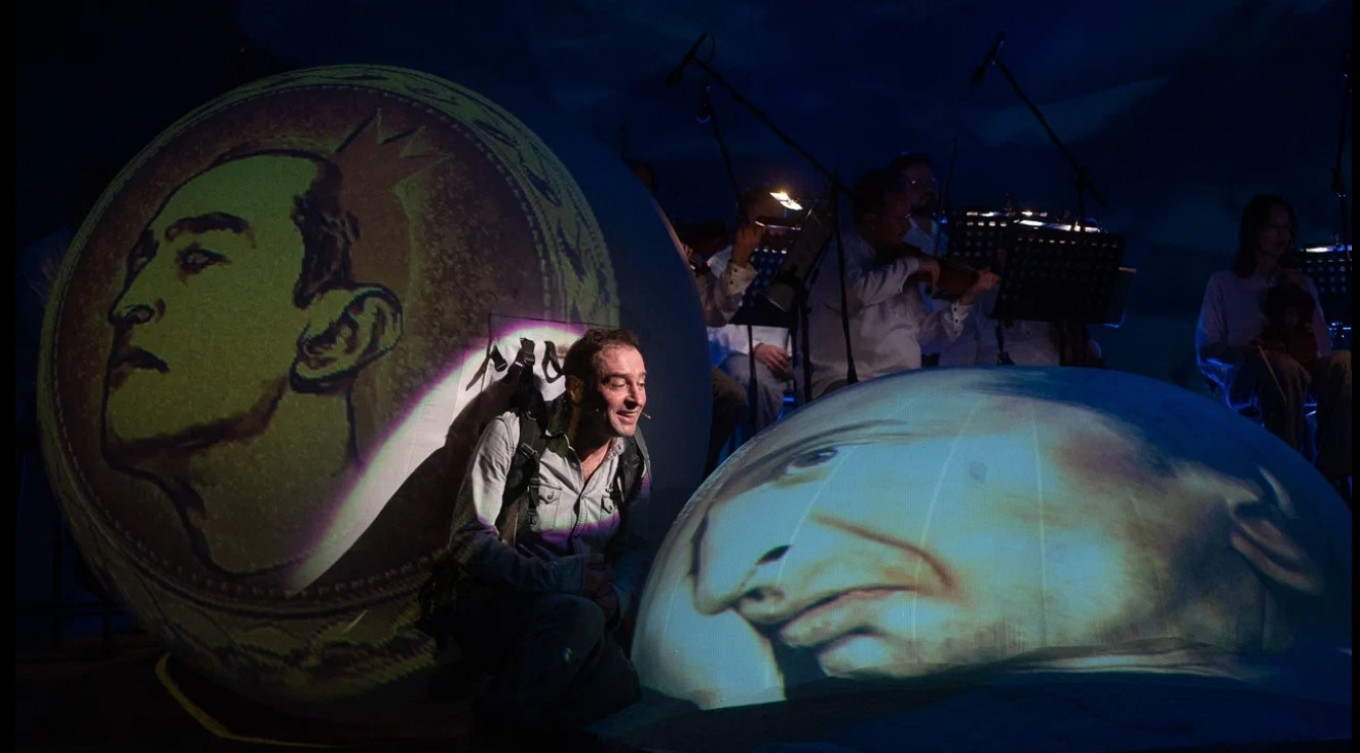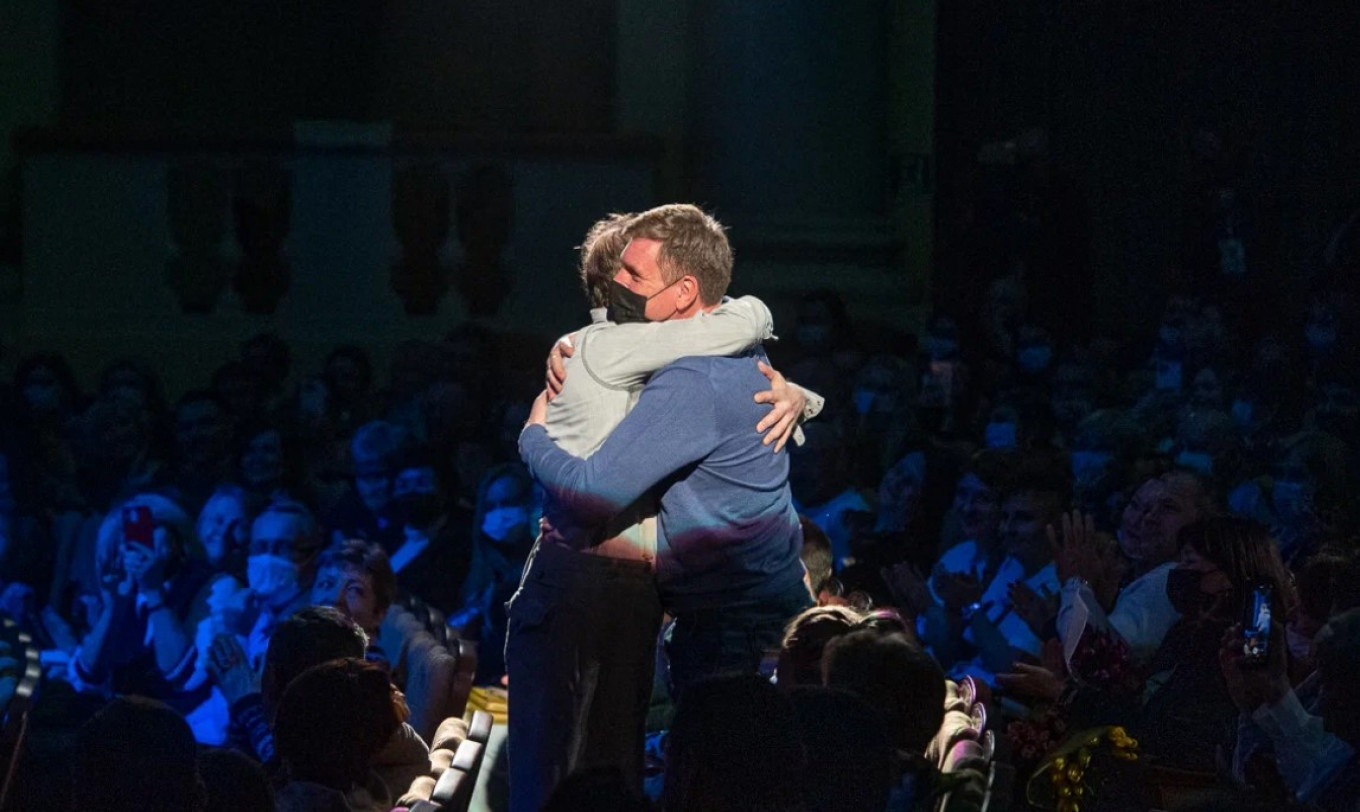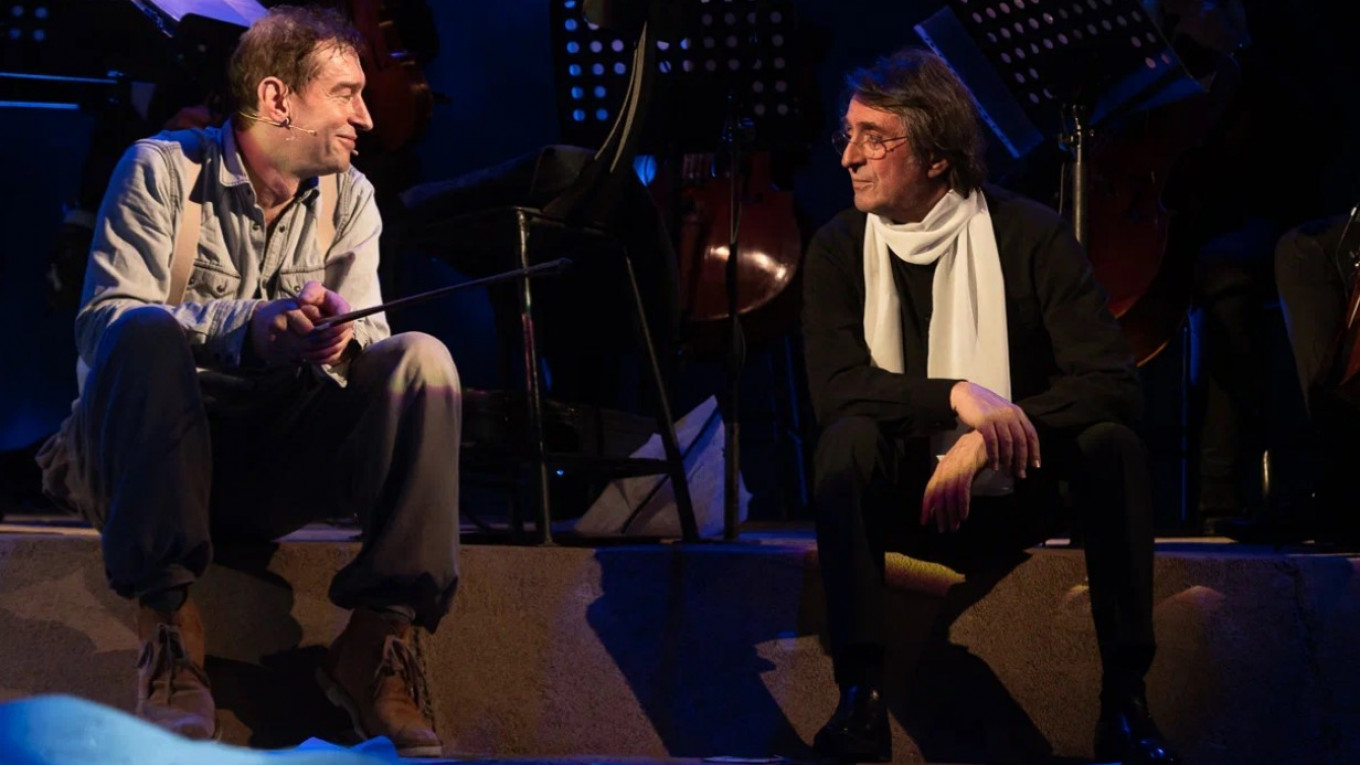The 15th Sochi Winter International Arts Festival begins today for a 10-day run of music, theater, art and events, but last night was the festival curtain raiser: a production of Moscow Sovremennik Theater called “Don’t Leave Your Planet” that premiered at the first Sochi Winter Festival in 2016.
Based on “The Little Prince” by Antoine de Saint-Exupéry, it is a “visual and musical fantasy” that was conceived by Konstantin Khabensky — the celebrated actor, writer, director, and producer who was recently named artistic director of the Moscow Art Theater — and Yuri Bashmet — the renowned conductor, violinist and violist. Their concept was brought to the stage by Viktor Kramer, who wove together the text (using Nora Gals’ translation into Russian), designed the sets and costumes and directed it.
The stage set is simple: a large sandbox, a podium for musicians, and a backdrop of a large, roughly shaped mountain and sky. The musicians — the Moscow Soloists Chamber Orchestra — take their seats, led by Bashmet. And then the wiry Khabensky bursts onto the stage in an old-fashioned leather pilot’s jacket. Over the course of the next 90 minutes, Khabensky is the pilot who has crashed in the Sahara, he is the gentle Little Prince from the tiny asteroid planet of B612 who has been traveling to other planets, and he is all the characters the Little Prince met on those other planets. Sometimes he becomes the characters on stage; sometimes he is projected as the characters on huge, inflated globes, cubes, and other shapes that appear in the desert — and then he plays two or more characters all at once.
Khabensky switches personas, moods, and stories in an instant, keeping his ear on the audience to weave a fretful child into the story he is telling. He storms the musicians and tosses their music into the sky; he takes Bashmet by the hand and sits down on the podium to talk with him; he dashes off stage and out of the theater only to return a few minutes later carrying the huge propeller to fix his plane. The story is carried aloft by the musical score, beautifully chosen and performed, and by the colors, shapes and images that are projected on the stage and the backdrop of mountain and sky.

The fox that teaches the Little Prince about love appears as a white cello that a spotlight turns bright orange-red. Khabensky becomes the fox. He leaves the stage and wanders among the rows, choosing a random person to help him understand friendship. He asks bemused member of the audience to take a few steps towards him, and then back; then forward and back. This goes on for a while until he lets the man walk all the way to him and they embrace. Then they both then walk up and down the aisle hugging others.
The moment is magical. Khabensky doesn't break through the "fourth wall" to enter the world of the audience — he opens a hole through which the audience enters the world of the pilot and prince, where they can meet a fox with a lesson about love.
At the end, it isn’t clear if the Little Prince existed or was imagined by the pilot in his fear and misery; it isn’t clear if the Prince died or the pilot died. But in the end, it doesn’t matter.
In Moscow you can see the show at the Sovremennik in March and April. For more information and ticket sales, see the site here.
Michele Berdy is a guest of the Sochi Winter Arts Festival.

A Message from The Moscow Times:
Dear readers,
We are facing unprecedented challenges. Russia's Prosecutor General's Office has designated The Moscow Times as an "undesirable" organization, criminalizing our work and putting our staff at risk of prosecution. This follows our earlier unjust labeling as a "foreign agent."
These actions are direct attempts to silence independent journalism in Russia. The authorities claim our work "discredits the decisions of the Russian leadership." We see things differently: we strive to provide accurate, unbiased reporting on Russia.
We, the journalists of The Moscow Times, refuse to be silenced. But to continue our work, we need your help.
Your support, no matter how small, makes a world of difference. If you can, please support us monthly starting from just $2. It's quick to set up, and every contribution makes a significant impact.
By supporting The Moscow Times, you're defending open, independent journalism in the face of repression. Thank you for standing with us.
Remind me later.







